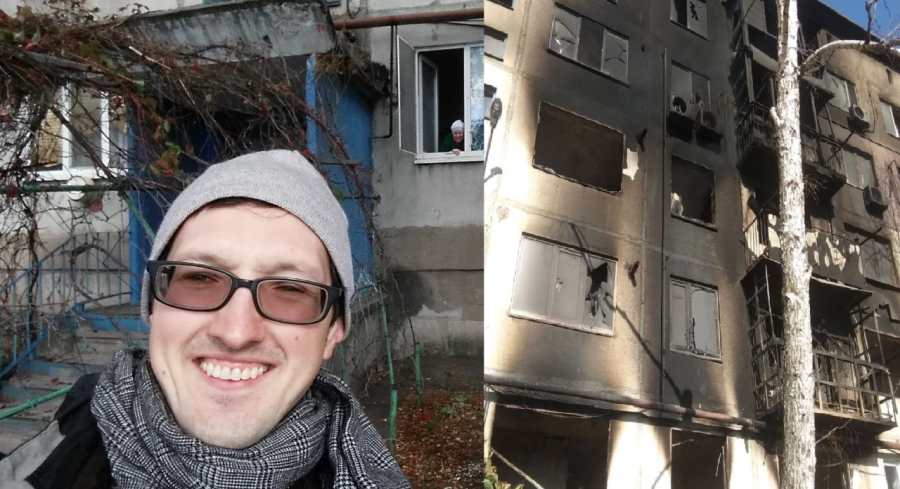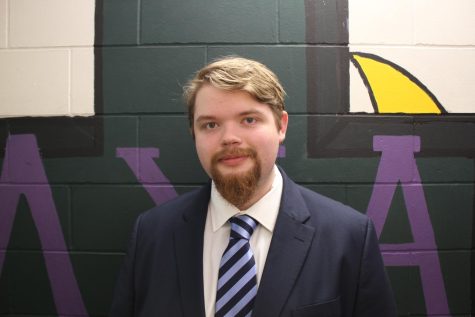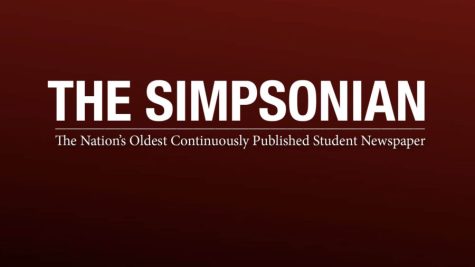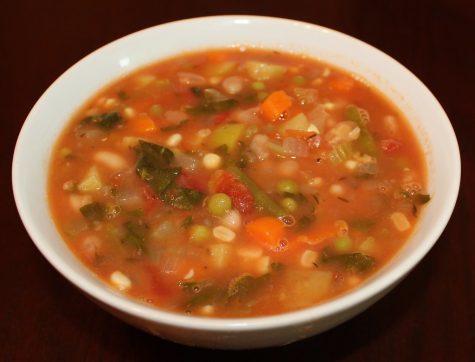Letter to the Editor: How Russian Propaganda Appears on Simpson’s Campus (Part 1)
Dr. Safin’s Ukraine home before and after the Russian invasion.
March 22, 2023
I’m a visiting professor of Psychology here at Simpson and my favorite topic to teach is cognitive biases. For May Term I will be teaching a course on how our cognitive processes can be exploited by propaganda and why we are so vulnerable to disinformation.
I was born and raised in Eastern Ukraine, so I am most familiar with Russian propaganda, and have been heavily influenced by it. This topic is both personal and painful for me, and I want you to get in the habit of noting the bias or position of the author/speaker when you are evaluating information that is new to you. We are most likely to believe information that we are encountering for the first time, as we have no basis to dismiss it as incorrect. Moreover, humans are susceptible to “confirmation bias” which means we’re more eager to accept information that confirms our prior beliefs (this makes it harder to correct misinformation).
Most of the world is not familiar with Ukrainian history and politics. You are likely not aware of the genocide that killed millions of Ukrainians in the 1930s. You may even be surprised that Russia invaded Ukraine in 2014, rather than last year, as the story did not capture the attention of the American audience like the brutal aggression of 2022. That unfamiliarity with Ukraine makes Americans a prime target for Russia’s propaganda.
The remarkable success of Russia’s propaganda partially relies on a “no-holds-barred, try everything, see what sticks” approach as they have no credibility to lose. This is effective because there’s something for everyone. Here are some of the reasons Russia’s officials and state media have used to justify its war: Nazis, satanists, protecting children from LGBTQ “agenda”, drug addicts, NATO, biolabs, racism, capitalism and many more. If you’re a conspiracy theorist, perhaps you’ll be swayed by the off-the-wall satanist biolab claims, but a more moderate argument that Russia was protecting itself from NATO expansion has been more prevalent on college campuses.
The March 7th lecture at Simpson on Russia’s invasion of Ukraine delivered that exact message that we have been seeing from Russian media outlets, namely that (1) Russia is just doing what U.S. would do, (2) it’s protecting its interests, (3) it’s being threatened, and it’s defending itself from NATO by invading a sovereign non-NATO country. This is a classic case of misdirection. Putin himself has said in the past (2002, 2003) that the question of joining EU or NATO belonged to Ukraine to decide independently, but then again he also said he would not invade Ukraine just days before invading.
If the lecture was given by a Russian official, I am not sure it could have been more sympathetic to Russia. The speaker compared Putin (a war criminal indicted by the ICC) to Peter the Great, mirroring Russian propaganda about Putin being a Czar ordained by God. The concluding remarks suggested that the audience not worry about Ukraine so much, because most countries don’t have wars, and instead perhaps focus on climate change. Can you imagine going to a talk on homelessness or police brutality or even cancer research and being told not to worry about it because it doesn’t affect most people? And to focus on a completely unrelated topic?
To be entirely clear, you are allowed to be indifferent about Ukraine’s struggle for survival. You are even allowed to be against U.S. support for Ukraine – perhaps it’s because you, like Ron DeSantis, think it’s against the interests of the U.S. However, if you’re working to convince other people not to care about Ukraine’s struggle, you are an extension of the Russian propaganda machine. (To be continued…)









